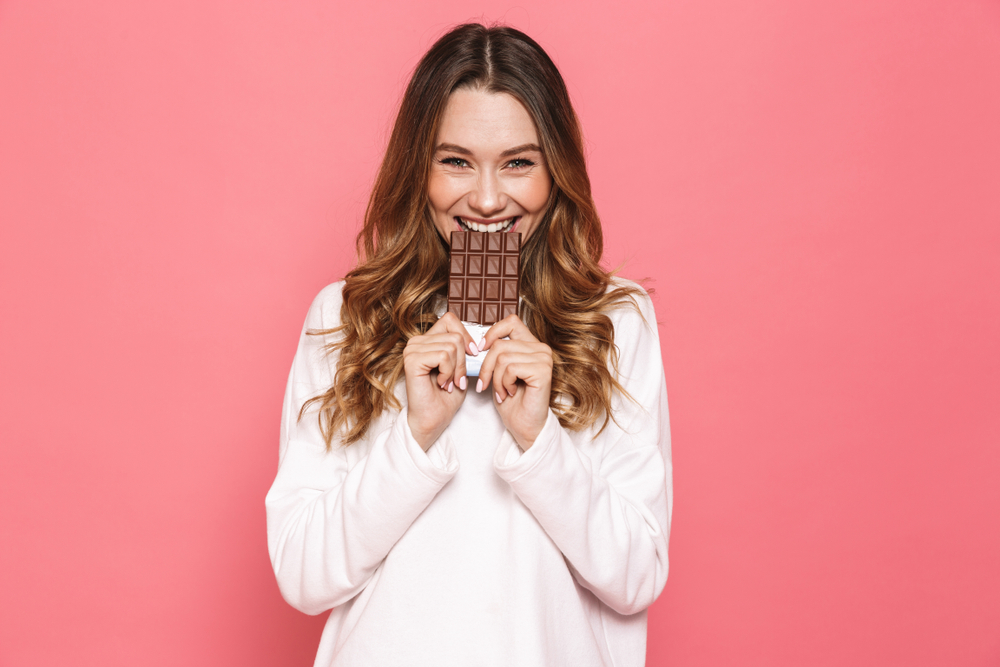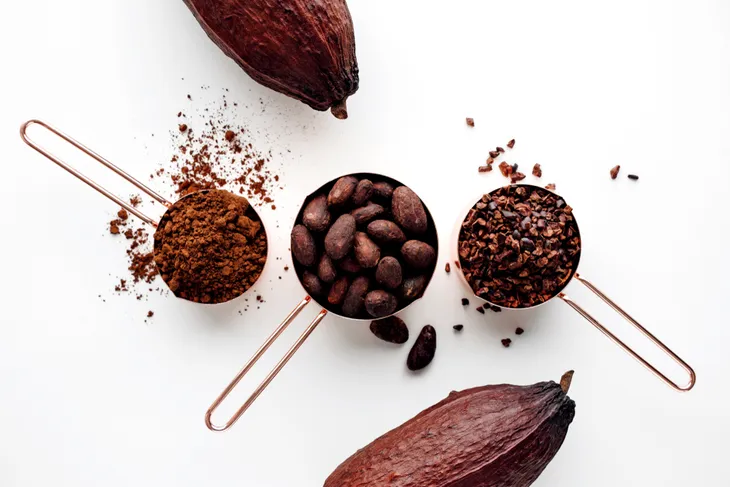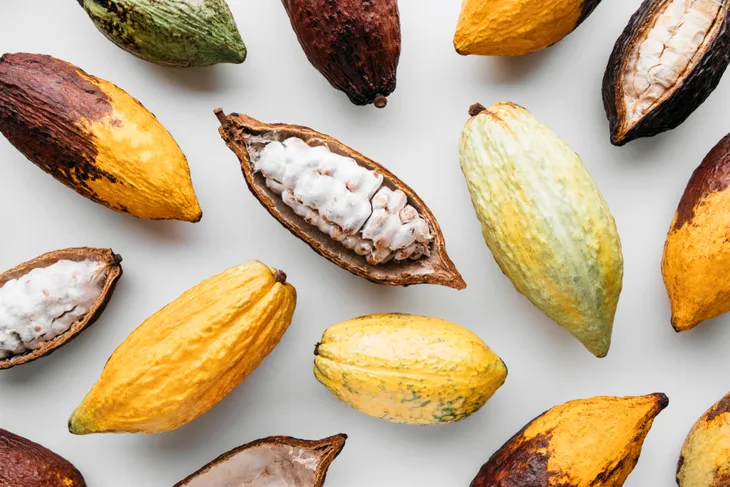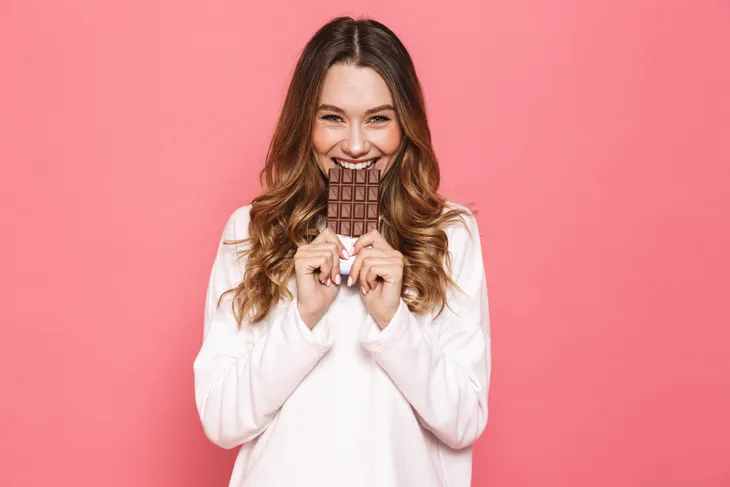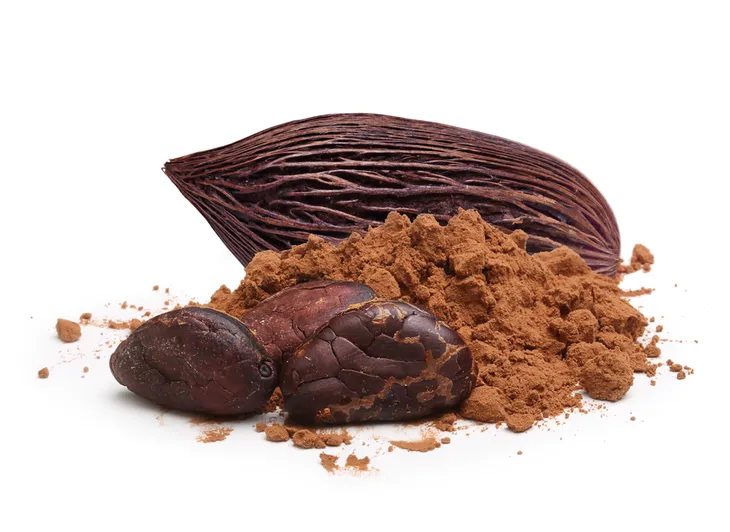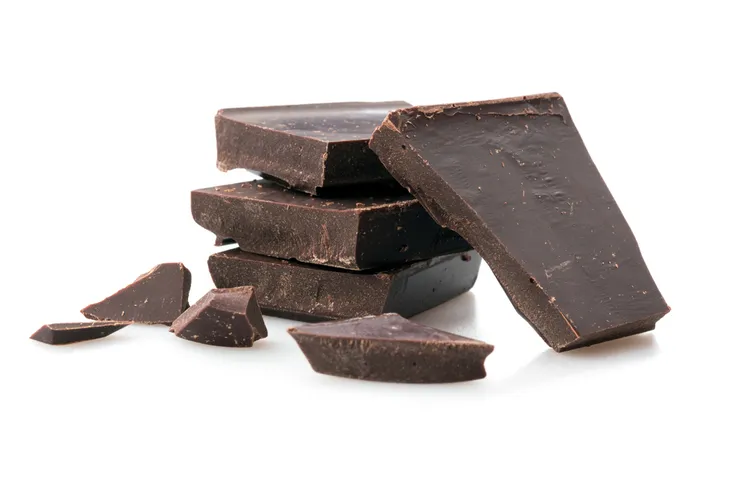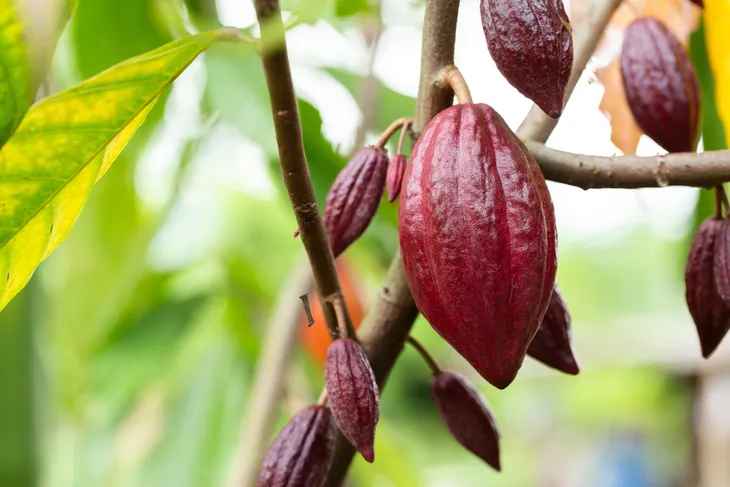Just one tiny slip of a little “a” and cocoa becomes cacao. And trust me; these two foods share very different properties and health benefits (or lack thereof). Sure there’s cocoa your mom puts in warm milk to make you a hot, cozy beverage on a winter night, and cacao, which your vegan cousin uses to bake her famous black bean brownies.
Maybe you enjoy both, but do you know the ins and outs of these very similar sounding foods? Let’s find out…
For the Love of Sweet, Sweet Cocoa
For those of you who like to curl up on the couch with a hot cocoa on a frigid winter’s eve, have no doubt sprinkled this dried powder, which is extracted from the fully fermented cocoa bean (theobroma, which translates in Latin to “food of the gods”) by roasting it at high temperatures.
The cocoa seed is used to make cocoa butter, cocoa solids, and most popularly, forms the basis of chocolate. And well chocolate-lovers can rejoice in the many health benefits of cocoa, it’s very different from raw cacao.
Raw Cacao
The difference between cocoa and cacao exists far beyond mere spelling. These foods in powdered form sure look similar, but cacao is a raw superfood made by cold-pressing unroasted cocoa beans. The fact that cacao is raw (not processed or roasted, like cocoa) means the nutritional value in the living enzymes is retained and the fat (cacao butter) taken out.
Cacao can be considered a food grouping, amassed from edibles derived from cacao beans, which can be made up of cacao paste, cacao mass, cacao butter, and most popular, cacao nibs.
Nutritional Value of Cocoa (or Chocolate)
Cocoa gets a bad rap because it’s very high in saturated fat and void of almost all other nutritional value, aside from sugar so it’s often difficult to believe that chocolate (even dark chocolate) could contain any health benefits. If you purchase a chocolate bar at your local bodega, yes, the basis is taken from the cocoa bean, however, there is usually a lot of sugar (and other ingredients) added.
This is because cocoa is highly processed, in fact it’s totally processed. Common additives can include artificial flavor, color, soybean oil, soy lecithin, milk solids, and more. This is the type of chocolate available at most stores. Look for a chocolate made from raw cacao to avoid the type of bars that will otherwise contribute to health negatives such as weight gain, metabolic syndrome, heart disease, and type 2 diabetes.
Nutritional Value of Cacao
Raw cacao, on the other hand, is not a processed food. In fact, it’s a completely raw food that lacks the artificial additives and sugar common to cocoa (or common store-bought chocolate). Leaving cacao unprocessed means that this substance is rich in antioxidant power.
Antioxidants protecting our bodily cells from free radical damage and premature aging. Cacao also boasts a nutritional bounty of vitamins and minerals including calcium, magnesium, iron, and potassium.
Why is Dark Chocolate Considered Healthy?
I’m sure many of you have read (in order to validate a recent chocolate binge) your share of studies touting the healthy benefits of dark chocolate? From scientific proof that it lowers blood pressure to research studies that claim nibbling on a few squares dark chocolate (moderation is key) prevents heart disease, the studies are numerous.
However, Dr. Mauro Serafini, PhD at Italy’s National Institute for Food and Nutrition Research, warns that the chocolate must be 100-percent dark and contain no milk. Reason being the dark chocolate contains beneficial antioxidants, which blast free radicals and prevent disease, however, should that chocolate contain even a little bit of milk, it interferes with antioxidant absorption and eradicates all the positive health benefits.
Can Cacao Be Considered a Superfood?
Yes, as long as you’re noshing on unprocessed products derived from the raw cacao bean it can be considered a superfood. And studies from UniversityHealthNews.com find that raw cacao has earned that title due to its ability to boost memory and learning abilities, and even lift mood (happiness), while working as a tasty ingredient in cookies, breakfast bars, puddings, and those delectable black bean brownies.
Additional research from this 2015 study from the University Hospital Düsseldorf found that consuming raw cacao flavonoids can help reduce insulin resistance and lower blood pressure by increasing vasodilation (blood flow) and improves blood cholesterol for less risk of developing age-related cardiovascular diseases.
